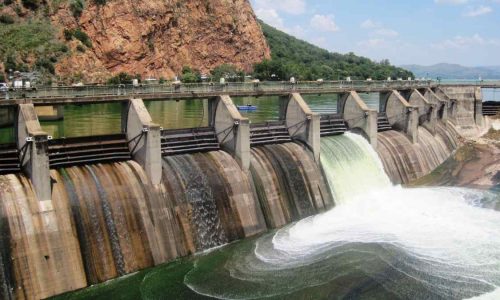The Coordinating Ministry for Maritime Affairs and Investment, the Energy and Mineral Resources Ministry, the Environment and Forestry Ministry, the Association of Indonesian Forest Concession Holders (APHI) and the Indonesian Coal Mining Association (APBI) are collaborating on preparing biomass and coal pilot projects. The cooperation was discussed during a visit to the mining company PT Indominco Mandiri reclamation site in Bontang, East Kalimantan, on May 24 and May 25, 2022.
By 2030, Indonesia aims to reduce greenhouse gas emissions by 29% from the business as usual scenario. One of the efforts is to co-fire coal-fired power plants with biomass to reduce fuel costs and reduce emissions while at the same time improving the efficiency of the firing process. Co-firing biomass is part of the initiative to achieve a 23% renewable energy mix by 2025.
State-owned electricity company PT PLN plans to co-fire coal-fired power plants at 52 sites. As a result, PLN will need 9 million tons of biomass by 2025.
Dirhansyah Conbul, a senior official in the Coordinating Ministry for Maritime and Investment, said the potential for biomass and coal blending could not be utilized as there is neither a policy nor a regulation regarding its use.
“It is an upcoming market, primarily because industries, which still use coal, can implement co-firing with biomass to reduce emissions,” he said on May 31, 2022.
The maritime and investment ministry has initiated a cross-ministerial working group to promote biomass to reduce greenhouse gas emissions and increase renewable power generation.
Indominco mining coordinator Era Tjahja Saputra said the company welcomed the ministries’ efforts to encourage the use of biomass and coal pilot projects.
The company is in the process of transforming itself into a green enterprise. Co-firing biomass has been simulated at the company’s coal-fired power plant.
Currently, PLN is not the only company buying wood chips. Industries with independent coal-fired power plants that utilize coal to produce cement and fertilizer also use wood chips. The use of biomass wood chips will significantly improve the quality of exhaust gas from coal boilers by reducing the amount of ash. In addition, the negative impact of H2SO4 emissions from the firing process can be reduced.
PT Perhutani, a state-owned forestry company, will supply the required biomass wood chips in the form of sawdust, according to forestry expert Dede Hermawan.
“It is planned for the supplier and off-takers to be located in the same locations to ensure the availability of sustainable biomass supply at an economically feasible cost,” he added.
Irdika Mansur, a mining expert, said on the same occasion that mining reclamation land might be suitable for the production of biomass. In mining companies, coal-fired power plants are typically located near the coal mines, so they can use wood chips to co-fire coals, thereby not destroying existing forests.









